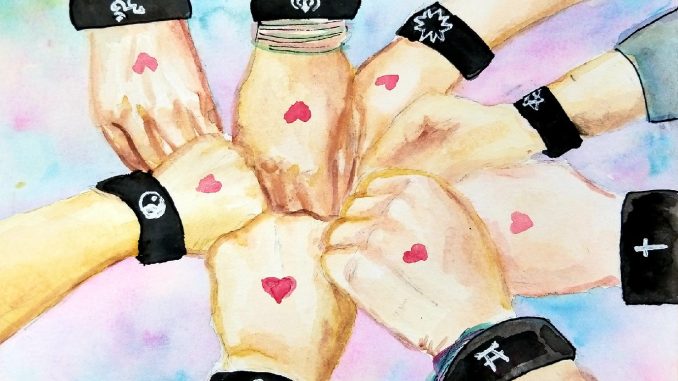
By Felicia Mello (for Cal Matters)
CalMatters is an independent public journalism venture covering California state politics and government. For more info, visit calmatters.org.
California recently awarded $91 million in grants to local organizations that help prevent hate crimes or support survivors, part of an unprecedented effort to combat hate in a state that saw a 20 percent increase in such crimes in 2022.
Despite its progressive reputation, California last year reported steep increases in hate crimes against transgender people (up 55 percent), Muslims (up 39 percent) and Black people (up 27 percent), according to the Attorney General’s office.
That growth outpaced similar hate growth trends in 42 major cities, according to a soon to be released study by Cal State San Bernardino’s Center for the Study of Hate and Extremism.
The state’s latest Stop the Hate grants bring its non-law enforcement anti-hate spending to more than $200 million since 2021, more than any other state, advocates say. (The latest round of funding includes $200,000 awarded to the Chico Area Interfaith Council.)
The grants will go to more than 170 community groups at a time when the state is experiencing a steady clip in high-profile hate incidents—from the August murder of a Southern California store owner who flew a rainbow flag, and the recent evacuation of an Oakland elementary school after a racist bomb threat, to the fiery debates over rights of transgender students at various school boards.
California in the past year created a commission to study the state of hate and set up a hotline for people to report incidents to its Civil Rights Department. The state also put together a team of mediators to address conflicts in communities.
‘Swap meet of hate’
Both Sacramento and Los Angeles saw record levels of hate crimes in 2022, according to the study by the Center for the Study of Hate and Extremism, which independently analyzes data from local law enforcement agencies.
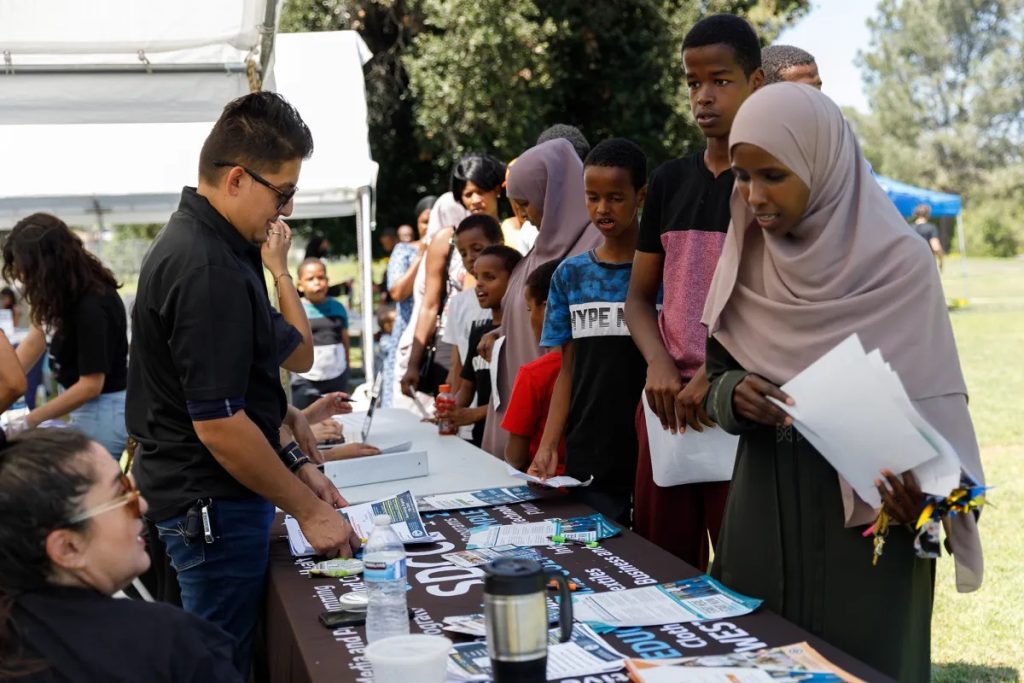
Researchers say that while the state’s reported hate crime numbers appear to be dipping slightly in 2023, the upcoming presidential election is likely to turn up the temperature even more.
“We are very concerned about an increase next year,” said Brian Levin, a study author and member of the 9-month-old Commission on the State of Hate. He told fellow commissioners last month: “Mainstream politics has gotten not only more tribal, but also more bigoted.”
Levin said in an interview with CalMatters that hate crimes historically rise in response to political speech and current events. But in recent years such spikes have lasted longer, such as when anti-Black crimes remained elevated months after 2020’s Black Lives Matter protests.
Social media provides “a 24-7 swap meet of hate,” he said. “We’re having a significant increase in hate crimes, and hate crimes are getting more violent. But we’re also having more reporting, particularly in certain areas.”
Hate crimes are notoriously difficult to track. Survivors often don’t report them, and local law enforcement agencies vary in how well they monitor them and how much they report to state and federal authorities.
California’s grants aim to help reduce or respond to hate crimes, and to incidents that may not rise to the level of a crime but nevertheless take a toll on an individual or community.
Anti-transgender hate
Terra Russell-Slavin, chief impact officer at the Los Angeles LGBT Center, said that center is receiving more hate mail than in the past and recently experienced a credible bomb threat.
“There definitely is increased fear among the community,” she said, adding that the rise in reported hate crimes against transgender people, while troubling, is not surprising.
“This is part of a nationally coordinated attack against our community, and it’s very much targeted at transgender people and particularly trans youth issues,” she said, adding that anti-transgender rhetoric by elected officials “has been field-tested, and frankly it feels like attacking the transgender community is helping rally their base.”
Equality California, an LGBTQ civil rights organization, received a wave of phone calls at the start of pride festival season from people organizing such events in small towns wondering if it was safe, said program director Erin Arendse.
Equality California is using its $630,000 state grant to create a rapid response network that can send staff and resources to local communities when issues arise—such as when a school board is deciding on policies that would out transgender students or ban rainbow flags in classrooms.
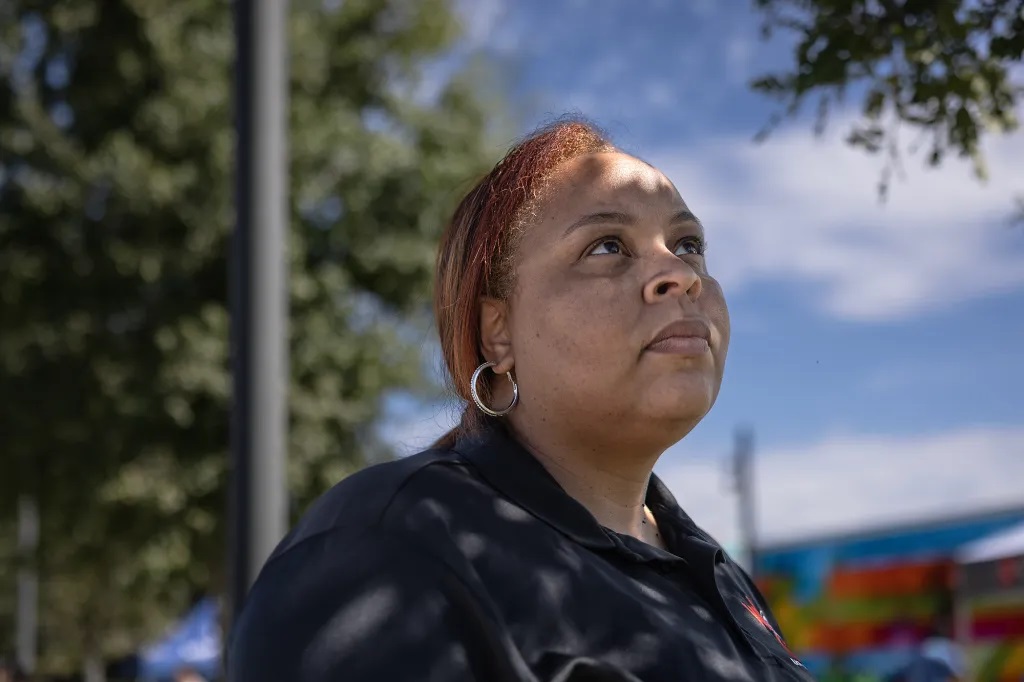
“We want to make sure they understand these policies,” Arendse said, “both in terms of how it impacts an individual student and how it turns up the temperature of anti transgender and LGBTQ sentiment and indicates that it’s OK to discriminate against this group of people.”
Black Californians most often affected
In California and nationwide, Black people and communities are the most frequent target of reported hate crimes, data show.
Black people represented 6 percent of California’s population but about 30 percent of its reported hate crime victims in 2022, according to the Attorney General’s office. Yet organizations focused on the Black community appear to be receiving a fraction of the grants the state is disbursing.
One group, the Black Youth Leadership Project in Elk Grove, a Sacramento suburb, will use its Stop the Hate funds to provide mental health services—from art therapy to support groups—to Black children who experience racism in school, said Lorreen Pryor, its president.
The organization often mediates between schools and outraged parents, advocating for administrators to take parents’ concerns seriously. School bias can range from a teacher using the N-word in class to a Black student being disciplined for behavior that is tolerated from other students, she said.
She added she was surprised to discover that hers was the only Black-led group on a conference call of organizations consulting on the state’s hate hotline.
“We have to focus on the group that is most impacted, and that happens to be Black people,” Pryor said. “And until they do that, it’s all for naught.”
Early focus on anti-Asian hate
California originally created the Stop the Hate grants in response to a surge in anti-Asian hate incidents reported during the Covid-19 pandemic. The coalition Stop AAPI Hate has documented more than 11,000 such incidents nationwide since 2020.
Gov. Newsom signed the Asian Pacific Islander Equity budget in 2021 funding the grants at the urging of the state’s Asian American and Pacific Islander Legislative Caucus. Early grants primarily went to organizations serving that community.
The state broadened its most recent round of grants to fund organizations that reflect California’s diversity, said Manjusha Kulkarni, executive director of AAPI Equity Alliance, the lead organization distributing grants in the Los Angeles region. (The California Department of Social Services awards the grants.)
California’s declining Black population may have depressed the number of Black-led organizations applying for and receiving funding, Kulkarni said.
Some grants will address workplace hate. The NAACP’s California Hawaii State Conference is sponsoring legal consultations for people experiencing discrimination on the job or in housing. And San Francisco-based PRC, which helps Black transgender women reenter the workforce, is using its grant to make a film about its clients’ quest to overcome stigma and find jobs.
Another documentary, produced by teen filmmakers, will chronicle the impact of hate crimes on immigrant and refugee communities in San Diego. Somali Family Service, the non-profit spearheading the project, said it could empower other refugee communities and inspire policymakers to think about solutions.
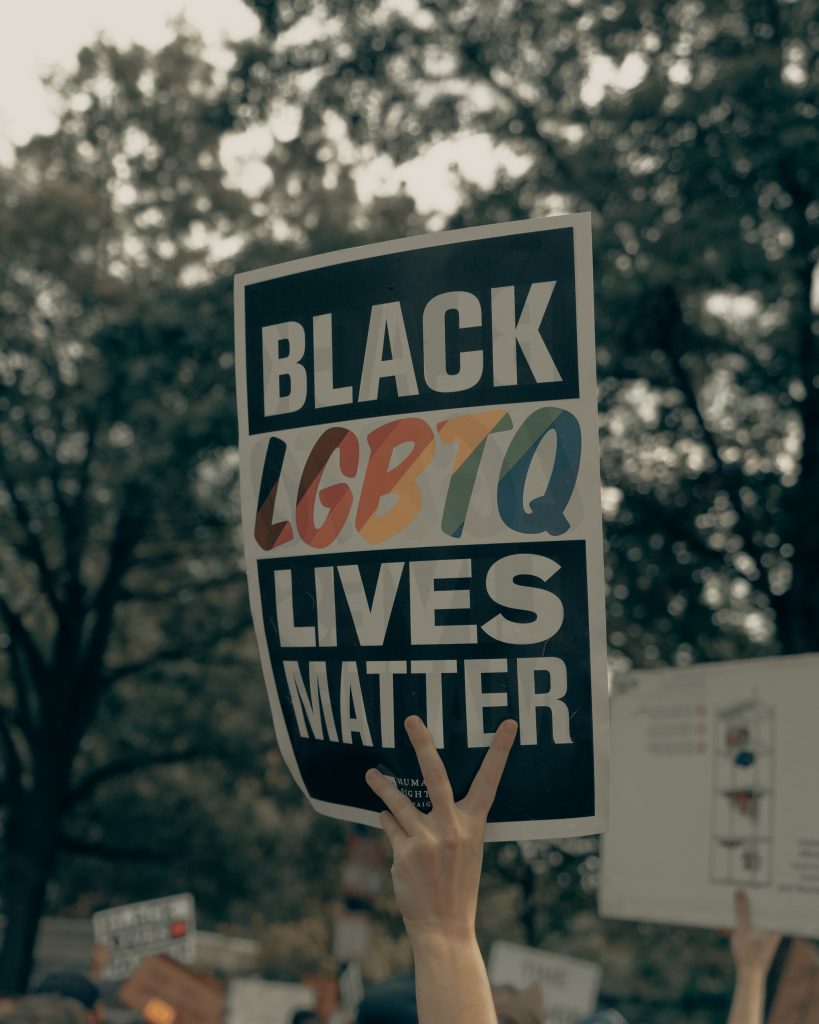
Most Middle Eastern and North African teenagers the organization serves have experienced or witnessed hate incidents, said Rachel Evans, the group’s youth program manager. Many tell her they stay home from school on September 11, hoping to avoid the racist and anti-Muslim taunts that have come from students, teachers and administrators on that day.
“Many of these youth were not even born when 9/11 happened and they’re experiencing this unjust, ridiculous blame,” said Evans. “They don’t feel welcome in the country based on something that has nothing to do with them.”
Inspiring victims to report hate
California’s hotline offers people who have experienced hate incidents an opportunity to report them, whether or not the incidents were crimes. From its launch in May through the end of August, it has received 361 calls, said the Civil Rights Department, which runs it.
One goal is to reach Californians who are reluctant to contact police or who live in remote areas with few community groups to turn to, department officials said. Callers can learn about the reporting process, file a civil rights complaint, and access counseling, legal services and other support.
Hong Lee knows from experience how important such support can be. Three years ago, while standing in line at a restaurant, Lee turned down a man’s offer of a lunch date and he began yelling anti-Asian and sexist slurs at her. Lee captured the incident on video but a responding police officer called it “normal” and refused to take a report, she said.
A month later Lee realized she was experiencing post-traumatic stress.
“I wasn’t sleeping at night, just staring up at the ceiling,” she said. “I was in complete denial that I needed help at first.”
A friend connected her with LA vs Hate, a Los Angeles-based precursor of the state’s hotline.
It helped her get mental health counseling.
Now Lee works with other hate incident survivors and has started a nonprofit organization, Seniors Fight Back, that provides self-defense classes to elderly Asian Americans and Pacific Islanders. Her group is not getting a state grant.
Often people at her classes share that they’ve been physically assaulted, she said, and Lee encourages them to report it, saying that in her case, several other victims recognized the man in her video and he ultimately faced hate crime charges from another incident.
Still, she said, many are reluctant to report. One woman in a self-defense class said she had been assaulted on public transit.
“She had bruises all over her body, but she didn’t want to tell anybody about it,” Lee said. “Two years later, she’s still inside her apartment, because she’s afraid to go outside.”
The Attorney General’s report said anti-Asian hate crimes fell in California by 43 percent in 2022 but they’re still far above pre-pandemic levels.
While scapegoating Asian Americans for the pandemic has receded nationally, anxiety about the economy and the U.S. relationship with China are driving other forms of anti-Asian racism, Kulkarni said. She cited Florida’s new law that bars Chinese citizens from owning property in much of that state.
Microaggressions still are a common experience among Los Angeles’ Asian-American and Pacific Islander communities, Kulkarni said, citing a state-funded study her group is conducting, but people are reporting declines in trauma symptoms when they speak out about their experiences. The AAPI Equity Alliance plans to use the study’s findings to launch support groups for Korean, Cambodian, Chinese, Filipino and Japanese Americans in January.
In the San Francisco Bay Area, the Coalition for Community Safety and Justice is using a state grant to build alliances among various ethnic communities to tackle issues that affect all of them, such as safety on public transit and within public housing complexes. Cynthia Choi, co-executive director of Chinese for Affirmative Action, a coalition member, said they’re asking public housing residents such questions as “Would you like to have escorts when you’re running errands? Would you like more opportunities to get to know your neighbors?”
“Safety is a concern for all communities, and it’s the one rallying point for residents and neighbors to come together around,” Choi said. “If we don’t tend to people’s basic needs being met, we are going to continue to see harm happen, whether it’s racially motivated or due to other factors.”
Community conflict resolutions
To help with that progress, the state’s new strike team of trained mediators will provide “immediate, on-the-ground intervention to avoid violence and to reduce tension in something that is live, something that is happening,” said Kevin Kish, director of the Civil Rights Department.
That could mean stepping in after a hate incident to help community members and law enforcement respond or it could mean helping a city council or school board prepare for a contentious meeting, he said.
“Nobody takes a class on how to deal with difficult public meetings,” he said. “People don’t know what to do and sometimes they make mistakes. Part of the value of this program is talking to folks in advance to make a plan for what might happen and how they’re going to respond.”
The mediators are trained in both civil rights and government. They began working together in October, officials said, declining to discuss details of specific cases.
Meanwhile the state’s Commission on the State of Hate is monitoring hate activity and hosting public forums. Consisting of activists, researchers, community leaders and law enforcement representatives appointed by the governor and Legislature, it’s required to issue annual reports and to recommend solutions.
Will all this effort actually reduce hate in California? Researchers say that just as bigoted comments by public officials can fuel crimes, when government leaders take strong stands against hate, such incidents decrease.
The Stop the Hate funding to community groups is part of a three-year plan, however it’s unclear whether lawmakers will choose to renew it. The law establishing the Commission on the State of Hate requires it to sunset in 2027.
“The question is, can we make sure the state continues to sustain this level of investment?” Choi asked.
Lee said a key will be more state outreach to grassroots organizations like her self-defense group. “We have the one-on-one connections to people.”
Added Levin, from the Center for the Study of Hate and Extremism: “This is not something that’s going to be solved by so-called experts and advocates. It’s going to be solved by soccer coaches, principals, community leaders, journalists. We need a whole-community response.”

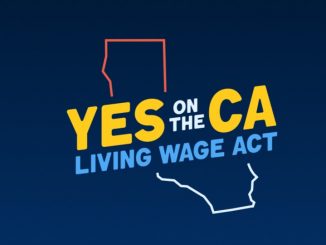
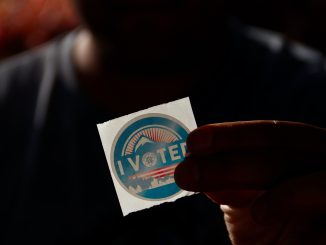
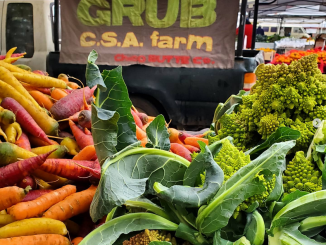
Thank you CNR for publishing and author Felicia Mello. As one of the authors of the RFA approved grant for the Chico Area Interfaith Council, I was surprised that the recent local hate crimes from November 2022 to the Native American mural and local synagogue were not mentioned in addition to the alarming statistics to the rise in antisemitic hate incidents and hate crimes have also risen during these years. We endure over 70% of religious hate crimes and encourage those numbers to be included as well. Not to mention our current situation and the hate that will follow just because we are American and Californian Jews. This is a local issue and I would like to offer a local perspective from a local paper.
In the months to come, Chico Area Interfaith Council will be solidifying ways that Butte County can aid in our goals and objectives focusing on school bullying, stereotypes and hate incidents. Please feel free to contact me to learn more.
May all communities and allies hold space for the people in each of the communities mentioned as we are all experiencing some level of injustice.